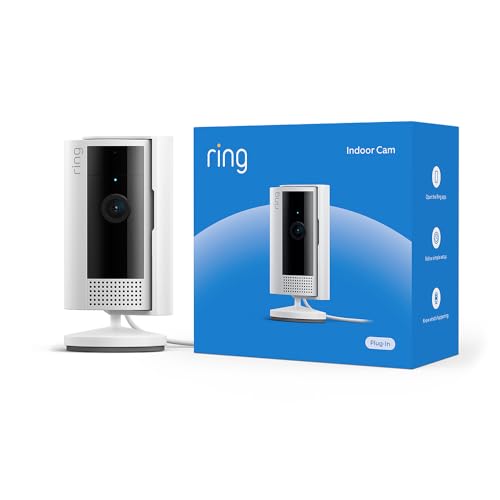


Unmanned Aerial Vehicles (UAVs), commonly known as drones, have become increasingly popular for recreational and commercial use. If you’re looking to legally fly a drone for commercial purposes in many countries, you’ll need to obtain a license or certification. Getting a drone license involves understanding the regulations, passing a knowledge test, and completing an application process.
Before you can take to the skies with your drone, it’s important to familiarize yourself with the regulations set forth by the aviation authority in your country. These regulations typically cover areas such as flight restrictions, drone registration, and safety guidelines. Make sure you comply with all the rules and requirements to operate your drone legally.
To obtain a drone license, you will likely need to pass a knowledge test that assesses your understanding of airspace regulations, safety protocols, and drone operation. Study guides and resources are available to help you prepare for the exam. Once you pass the test, you can then apply for your drone license and provide any necessary documentation to complete the process.
How to Obtain a License
To obtain a license to fly a drone, you will need to follow these steps:
- Take a drone pilot training course from an FAA-approved training provider.
- Pass the FAA Part 107 Remote Pilot Certification exam.
- Submit an application for a Remote Pilot Certificate through the FAA’s Integrated Airman Certification and Rating Application (IACRA) system.
- Pass a background check by the Transportation Security Administration (TSA).
- Receive your Remote Pilot Certificate with a small UAS rating.
Once you have obtained your license, you are legally allowed to fly a drone for commercial purposes in the United States.
Eligibility for Drone License
In order to obtain a license to fly a drone, you must meet certain eligibility requirements set by the aviation authority in your country. These requirements typically include:
Age Requirement:
You must be of a certain age, usually 16 years or older, to apply for a drone license. Minors may require parental consent.
Training and Knowledge:
You must complete a training course and pass a knowledge test to demonstrate your understanding of drone operation, safety procedures, and aviation regulations.
Training and Education Requirements
Before you can get a license to fly a drone, you must complete the required training and education. This typically includes taking a drone pilot certification course from a recognized training provider. The course covers topics such as airspace regulations, safety procedures, and drone operation techniques. Additionally, you may need to pass a written exam to demonstrate your knowledge and understanding of drone flying rules and regulations.
Preparing for the Exam
Study Materials
There are various study materials available online and in print to help you prepare for the exam. You can also consider taking a drone pilot training course to ensure you have a comprehensive understanding of the material.
- FAA’s Remote Pilot – Small Unmanned Aircraft Systems Study Guide
- Online study courses
- Practice exams
Applying for the License
Before you can fly a drone legally, you need to obtain a license from the relevant aviation authority in your country. The process for applying for a drone license may vary depending on where you are located, so it’s important to research the specific requirements in your area.
Typically, you will need to complete a training course on drone operation and safety, pass a written exam, and submit an application along with any required documentation. The exact steps and documents needed will be outlined by the aviation authority.
Make sure to carefully review the application requirements and provide all the necessary information to avoid any delays in obtaining your drone license. Once you have submitted your application, you may need to wait for a certain period of time before receiving your license.
Passing the FAA Test
Once you have studied the FAA’s guidelines and regulations, it is time to take the FAA Remote Pilot Certification Test. This test consists of 60 multiple-choice questions that cover various topics such as airspace, weather, regulations, and drone operations.
Preparing for the Test
Before taking the test, it is crucial to prepare thoroughly. You can find study materials and practice tests online to help you familiarize yourself with the content and format of the exam. Make sure to review all the relevant topics and regulations to increase your chances of passing.
| Study Materials | Practice Tests |
| FAA’s guidelines | Online resources |
| Drone regulations | Mock exams |
Additionally, consider taking a prep course or attending a training session to enhance your understanding of the material. Practice flying your drone and apply the knowledge you have gained to real-world scenarios to build confidence.
Maintaining Your License
Once you have obtained your drone pilot license, it is important to ensure that you maintain it properly to continue flying legally. Here are some key tips to help you keep your license up to date:
- Stay informed about any changes in drone regulations by regularly checking the official aviation authority website.
- Participate in continuing education courses or workshops to enhance your knowledge and skills as a drone pilot.
- Adhere to all safety guidelines and regulations while operating your drone to avoid any incidents that could jeopardize your license.
FAQ
What are the requirements to obtain a drone pilot license?
To get a drone pilot license in the United States, you need to be at least 16 years old, pass an aeronautical knowledge test at an FAA-approved testing center, and pass a background check by the Transportation Security Administration (TSA).
How long does it take to get a drone pilot license?
The time it takes to get a drone pilot license can vary depending on how quickly you can study for and pass the aeronautical knowledge test. Some individuals may take a few weeks to prepare, while others may take a few months. Once you have passed the test, the processing time for your license can be around 1 to 2 months.






